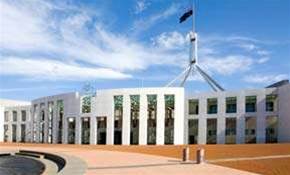The Australian Government has once again delayed taking any action on online privacy in its official response to a report from the Australian Parliamentary Cyber-Safety Committee.

Some six months after the committee issued a range of recommendations on improving online privacy, the Government has opted to stall on almost all of them.
The Cyber-Safety report made 32 recommendations, the most significant for the IT industry concerned nine proposal to tighten privacy protections.
All but two were “noted” and tagged for the Government’s long-running separate review of the 2008 ALRC report on privacy reforms.
The two recommendations the Government accepted urged the development of strong privacy protections for Australians online overseas; and that Australia's Privacy Commissioner develop guidelines for industry adoption on what constitutes consent for online services.
Among those merely 'noted' were recommendations urging the Government to bring small businesses dealing with substantial quantities of personal information (such as small ISPs or e-tailers) to be subject to the Privacy Act.
Also, the committee advised that personal data hosted overseas by Australian organisations should also be protected.
Another recommendation that was "noted” proposed a “Do Not Track” model for web browsers.
Without a hint of irony, the Government's response claimed that it was "actively pursuing measures" to address Cyber Security issues.
The muted response may be in some part due to a preference for these issues to be dealt with in the upcoming Cyber White Paper, run by the Prime Minister's department.
“In developing the White Paper the government will examine the full spectrum of cyber issues such as better coordination of awareness raising activities, development of skills, more centralised reporting of cyber incidents and a more coherent approach to cyber education,” the response stated.


_(23).jpg&h=140&w=231&c=1&s=0)
_(33).jpg&h=140&w=231&c=1&s=0)
_(20).jpg&h=140&w=231&c=1&s=0)






 iTnews Benchmark Awards 2026
iTnews Benchmark Awards 2026
 iTnews Executive Retreat - Security Leaders Edition
iTnews Executive Retreat - Security Leaders Edition
 iTnews Cloud Covered Breakfast Summit
iTnews Cloud Covered Breakfast Summit
 The 2026 iAwards
The 2026 iAwards












_(1).jpg&h=140&w=231&c=1&s=0)



